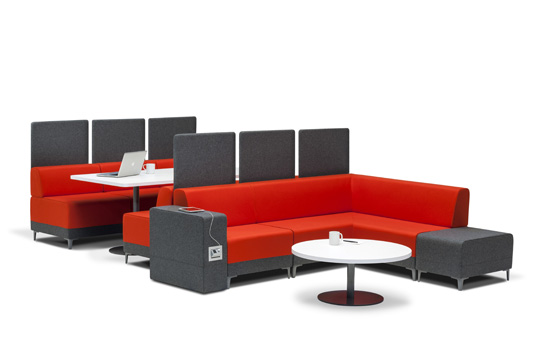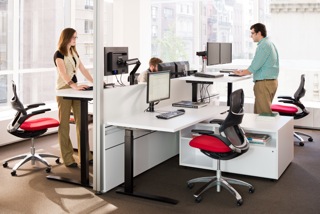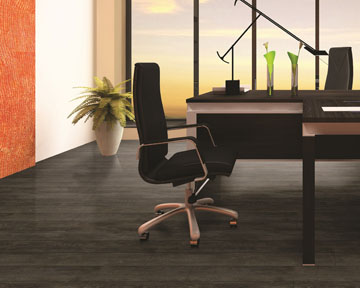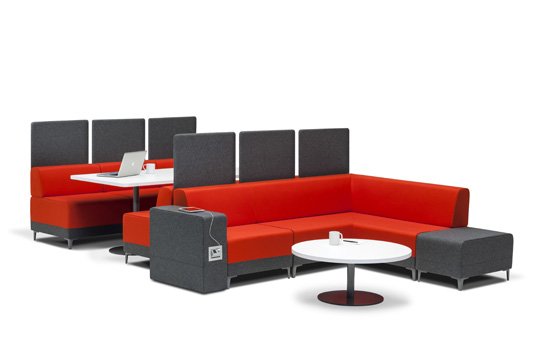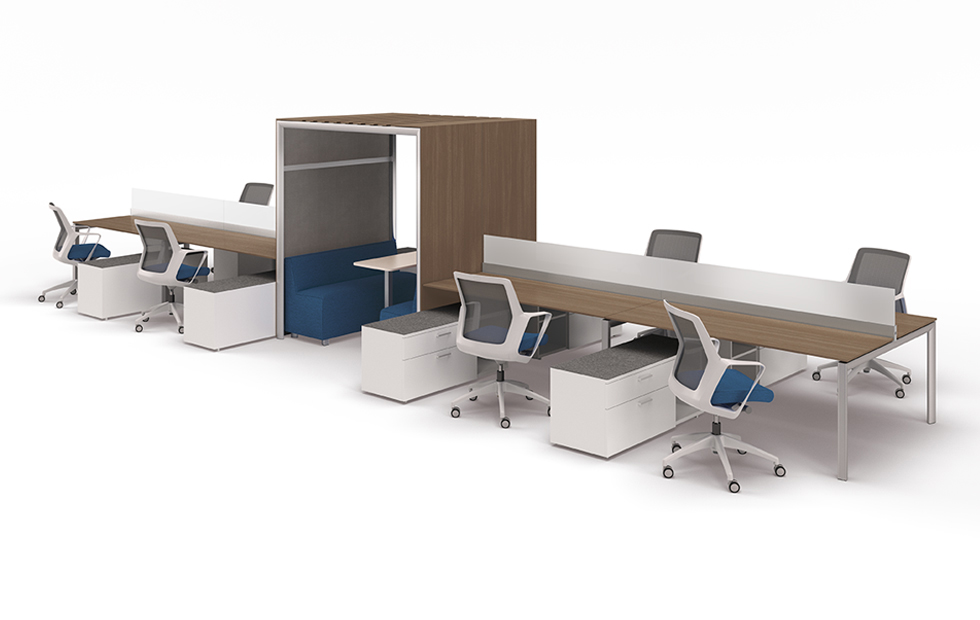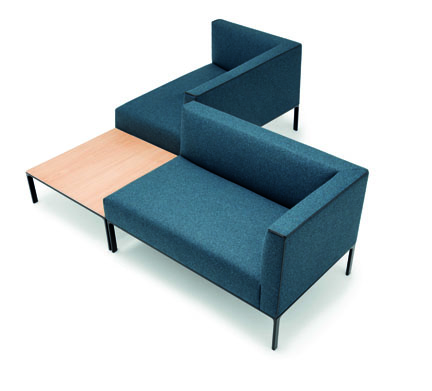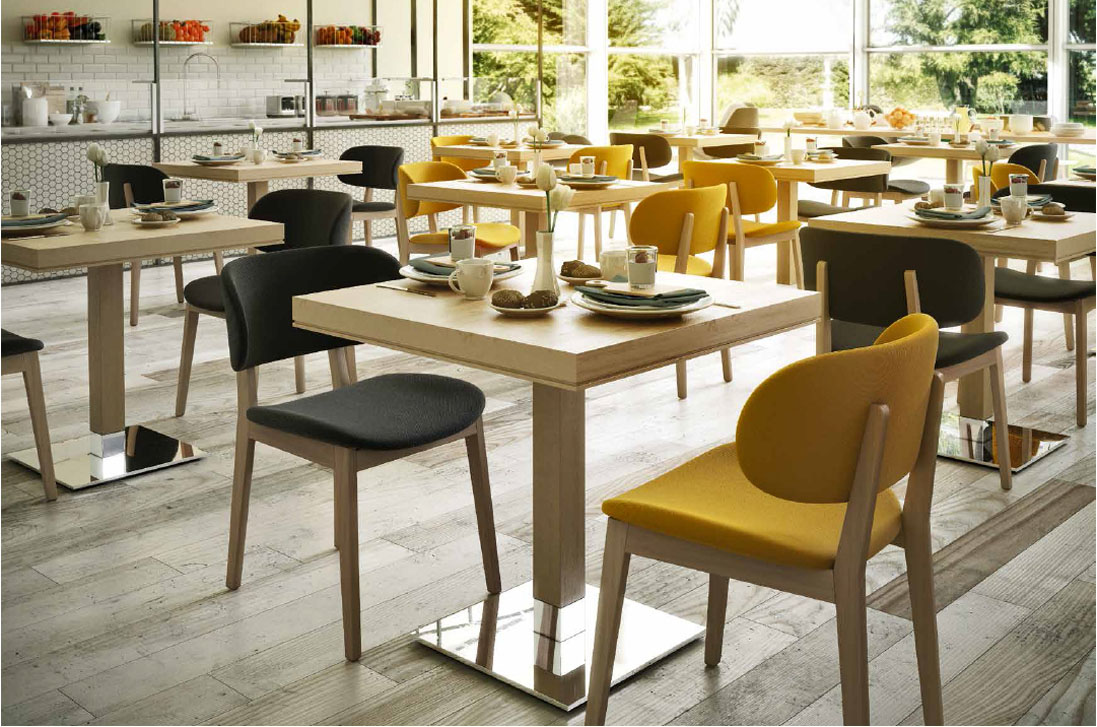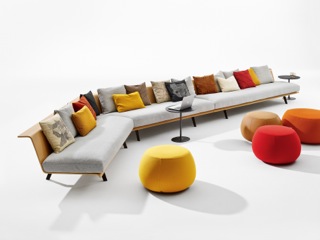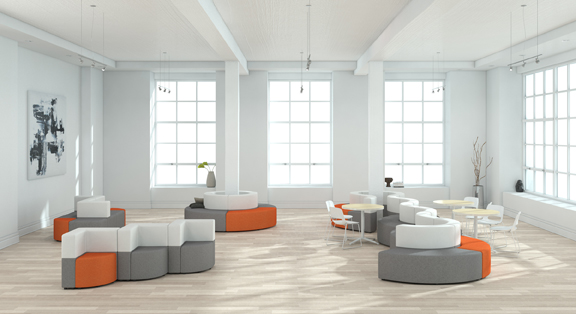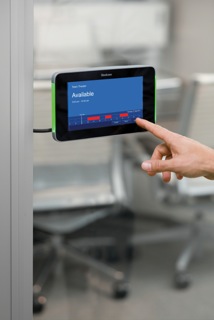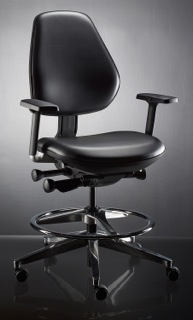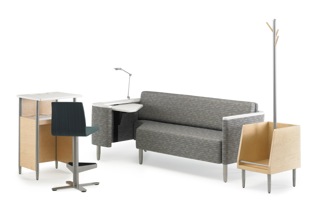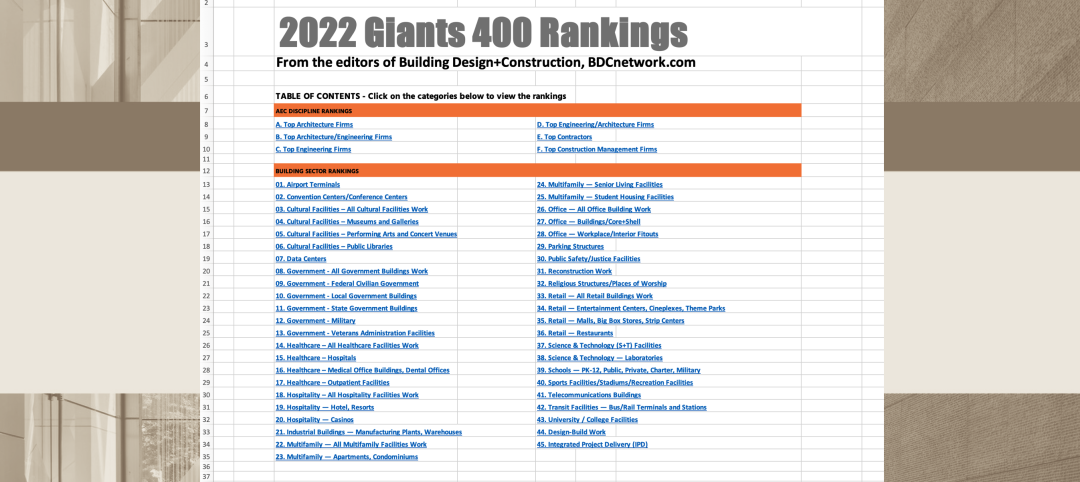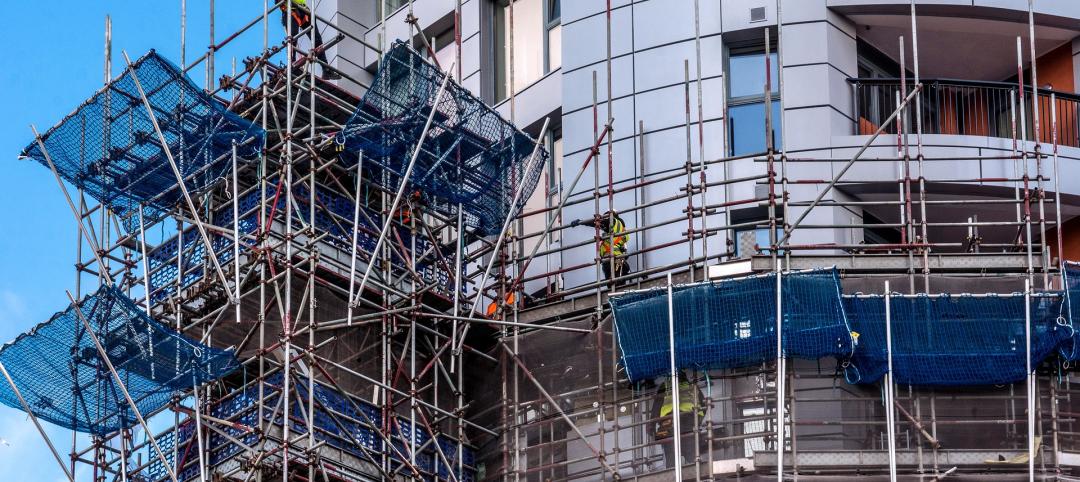In order to set the stage for this year’s NeoCon, show management tapped its advisory committee of top commercial design firms to share their insight on what’s hot right now and what lies ahead across key vertical sectors.
Leaders at Gensler, FXFOWLE, HOK, and Mancini Duffy weighed in on trends and corresponding product picks. Here are their top interior design trends:
Office/Corporate Design
Health & Wellness and Technology Are Key Features in the Office
“Finally, Baby Boomers and Millennials have found a passionate meeting of the minds on a topic that is also very personal: health and wellness,” says Workplace Strategist Priyanka Agrawala of New York-based design firm Mancini Duffy. “Convergence on this topic is also perhaps why organizations trying to attract new talent, retain experienced staff, encourage knowledge transfer, and increase productivity and engagement, think that investing in this area is a no-brainer.
The A&D industry is gearing up to help support this new business initiative, which also aligns with more established sustainable design practices. Green design and LEED principles have always passively contributed to wellness by creating good indoor air quality. Now we’re seeing circadian lighting; sit-stand desks; ergonomic lounge seating that also accommodates mobile technology; biophillic design elements like “live walls” and plants and gardens that bring the outdoors inside added to the mix, in addition to more active design concepts."
Active design principles that promote wellness include diverse work settings that not only support different work styles, but also encourage people to get up from their seats and move. As mobility within the office increases, so does the demand for 'plug and play' solutions that include collaborative spaces as well as individual desks and seating with built-in charging stations, stashable storage for technology, foldable tablet arms and side tables, and mobile marker/technology boards.”
Sarah Gerber, Senior Designer, Associate, FXFOWLE, elaborates on the changing corporate design landscape, noting, “Technology is having an enormous impact on furniture design, especially through ergonomics. The trend is not necessarily about incorporating technology, but responding to how we position ourselves when we use these technologies.
In addition, the ‘performative’ workplace is becoming a balanced workplace as organizations seek to find the right proportion of interactive and focused work. The future of the workplace is not a “one size fits all” approach; rather, it’s an innovative response to the growing amount of data at our disposal.”
Hospitality
Moving Toward More Flexible & Authentic Experiences
“Authenticity is fast becoming another overarching trend for all demographics," adds Monk. “Consistency in appearance and experience used to be the most important quality for hotel chains to convey. The idea was that wherever you went, a name brand looked and felt the same so guests could take comfort in the familiar.
These days, with technology and the Internet giving us access to an array of information, imagery and virtual experiences, travelers want to authentically experience the culture of the locale in which they are staying. Firms have responded to this desire by focusing on brand and property distinction while creating more unique experiences and products that tap into local flavors.”
Healthcare
Healthcare Sector Reacts To New Health Laws In Project & Product Design
Tama Duffy Day, Health & Wellness Director of Gensler, remarks, “As eight million new Affordable Care Act (ACA) enrollees have access to healthcare, the industry is responding by providing expanded and new ways of receiving care. Health systems are increasing their coverage and new players are moving the industry toward retail health.
Designers are shaping these clinical experiences in every way—from brand recognition and consumer-driven first-impression appeal, to efficient clinical floor plans in support of increasing the patient and provider interactions. Given this significant and fast-moving change in the industry, products need to keep up with the demand—for example, mobile small-scale technology carts, exam tables that can also be a chair, technology integrated into white boards, and spaces that can be used for telemedicine.”
With the Affordable Care Act placing more emphasis on the effectiveness of patient care and experience, the traditional model of hospital design is being rethought and reimagined by healthcare designers across the board—from architects and interior designers to product and equipment designers, and service and UX designers.
This renewed focus on human-centric outcomes for end users—the patients and their individual needs as well as the healthcare professionals that work in these environments every day—is bringing about a shift in scale from large-umbrella hospital campuses that house every type of care, to individual clinics and ambulatory care facilities.
Meanwhile, patient surveys indicate the desire for medical environments that are less sterile and “clinical” and more like a home. Designers are responding with solutions to improve experiential and usability factors for patients and their caregivers. These include decreasing noise and increasing privacy, providing more natural light, improving the accessibility, movement and ergonomics of furniture and equipment, enabling multitasking, and creating surfaces that are easier to clean.
Related Stories
Intelligent Lighting | Feb 13, 2023
Exploring intelligent lighting usage in healthcare, commercial facilities
SSR's Todd Herrmann, PE, LEEP AP, explains intelligent lighting's potential use cases in healthcare facilities and more.
Giants 400 | Feb 9, 2023
New Giants 400 download: Get the complete at-a-glance 2022 Giants 400 rankings in Excel
See how your architecture, engineering, or construction firm stacks up against the nation's AEC Giants. For more than 45 years, the editors of Building Design+Construction have surveyed the largest AEC firms in the U.S./Canada to create the annual Giants 400 report. This year, a record 519 firms participated in the Giants 400 report. The final report includes 137 rankings across 25 building sectors and specialty categories.
Giants 400 | Feb 6, 2023
2022 Reconstruction Sector Giants: Top architecture, engineering, and construction firms in the U.S. building reconstruction and renovation sector
Gensler, Stantec, IPS, Alfa Tech, STO Building Group, and Turner Construction top BD+C's rankings of the nation's largest reconstruction sector architecture, engineering, and construction firms, as reported in the 2022 Giants 400 Report.
Cladding and Facade Systems | Dec 20, 2022
Acoustic design considerations at the building envelope
Acentech's Ben Markham identifies the primary concerns with acoustic performance at the building envelope and offers proven solutions for mitigating acoustic issues.
Digital Twin | Nov 21, 2022
An inside look at the airport industry's plan to develop a digital twin guidebook
Zoë Fisher, AIA explores how design strategies are changing the way we deliver and design projects in the post-pandemic world.
Giants 400 | Nov 14, 2022
Top 65 Airport Terminal Engineering + EA Firms for 2022
AECOM, Jacobs, Arup, and Burns & McDonnell head the ranking of the nation's largest airport terminal engineering and engineering/architecture (EA) firms for 2022, as reported in Building Design+Construction's 2022 Giants 400 Report.
Giants 400 | Nov 14, 2022
Top 60 Airport Terminal Contractors + CM Firms for 2022
Hensel Phelps, Turner Construction, Walsh Group, and Holder Construction top the ranking of the nation's largest airport terminal contractors and construction management (CM) firms for 2022, as reported in Building Design+Construction's 2022 Giants 400 Report.
Giants 400 | Nov 14, 2022
Top 55 Airport Terminal Architecture + AE Firms for 2022
Gensler, PGAL, Corgan, and HOK top the ranking of the nation's largest airport terminal architecture and architecture/engineering (AE) firms for 2022, as reported in Building Design+Construction's 2022 Giants 400 Report.
BAS and Security | Oct 19, 2022
The biggest cybersecurity threats in commercial real estate, and how to mitigate them
Coleman Wolf, Senior Security Systems Consultant with global engineering firm ESD, outlines the top-three cybersecurity threats to commercial and institutional building owners and property managers, and offers advice on how to deter and defend against hackers.
Mass Timber | Aug 30, 2022
Mass timber construction in 2022: From fringe to mainstream
Two Timberlab executives discuss the market for mass timber construction and their company's marketing and manufacturing strategies. Sam Dicke, Business Development Manager, and Erica Spiritos, Director of Preconstruction, Timberlab, speak with BD+C's John Caulfield.


